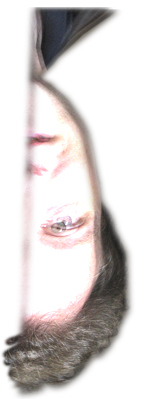
Joël-François Durand was born in Orléans, France on 17 September 1954. He studied mathematics, musicology and piano in Paris, then composition with Brian Ferneyhough in Freiburg im Breisgau, Germany (1981-84). In 1979 and 1983 he attended the composition courses of György Ligeti and Luciano Berio at the Centre Acanthes. In 1982 he was awarded a scholarship from the DAAD (German Academic Exchange). That same year he received a Darmstadt Institute Scholarship for his String Trio, and in 1983 his piano piece "...d'asiles déchirés..." was awarded a prize at the Third International K.H. Stockhausen Composition Competition in Brescia (Italy). He left Europe in 1984 to pursue a Ph.D. in Composition at the University of New York, Stony Brook (USA) where he studied with Bülent Arel and electronic music with Daria Semegen. He was awarded scholarships from the Fulbright Foundation in 1984 and from the French Ministery of Culture in 1985. He obtained the Ph.D. in 1988.
He received the "Kranichsteiner Musikpreis" from the Darmstadt Internationalen Ferienkurse in 1990.
- He has been teaching at the School of Music, University of Washington in Seattle, since 1991, where he is Professor of Composition. Starting in 2002, Durand is also Associate Director of the School of Music. As a guest composer and lecturer, Durand has contributed to the "Centre de la Voix" in Royaumont, France where he was co-director of the composition course in September 1993, the "Civica Scuola di Musica" in Milan, Italy (1995), the Royal Academy for Music in London, UK (1997), the Internationale Ferienkurse für Neue Musik in Darmstadt (1984, 1990, 1992, 1994), the "VIII. Internationaler Meisterkurs für Komposition des Brandenburgischen Colloquiums für Neue Musik", Rheinsberg (1998), among others. In the Fall 1994 he was Visiting Assistant Professor in Composition at the University of California at San Diego. Durand is also Director of the Contemporary Group at the School of Music, University of Washington.
Durand's music has been performed throughout Europe at a number of the most prestigious new music festivals: La Rochelle, Présences, Strasbourg, Darmstadt, Venice, as well as in the US and in South Korea, at the Pan Festival. He has received numerous commissions from the major European institutions, including the Ensemble Intercontemporain (Paris), the French Ministery of Culture, the IRCAM (Paris), the Strasbourg Festival "MUSICA" (France), the Ensemble "Contrechamps" (Geneva, Switzerland), Radio France.
He has also published an extensive analysis of Jean Barraqué's Piano Sonata (Entretemps, 1987), and an essay on the music of Ruth Crawford Seeger ("Voix Nouvelles 92", Royaumont).
Durand is listed in the New Grove Dictionary of Music and Musicians.